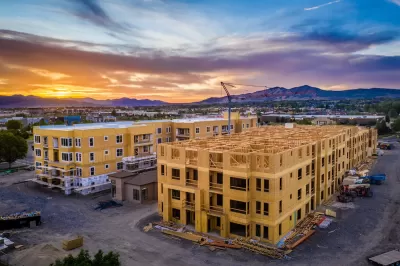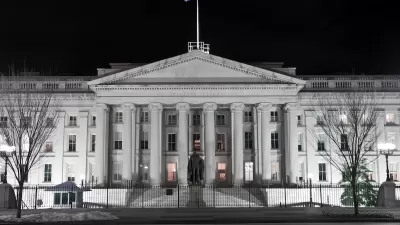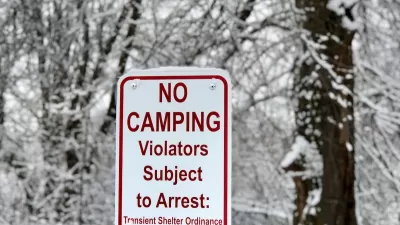How U.S. cities are seeking to diversify their funding sources for housing assistance programs and eliminate barriers to housing construction.

In an article for Smart Cities Dive, Kalena Thomhave outlines emerging trends in how cities approach reducing homelessness and alleviating the housing crisis, which continues to impact most American cities. “Just 34 affordable rentals are available for every 100 renters with extremely low income, according to the National Low Income Housing Coalition.”
As Thomhave notes, some cities are using their local power to reduce zoning restrictions on multifamily housing, enact tenant protection and rent stabilization laws, and outlaw discrimination against housing voucher recipients. “Alongside plans for the construction of permanent housing, cities are also building interim housing: safe, temporary housing for people experiencing homelessness.”
Cities are also looking for ways to reduce dependence on federal housing assistance programs. One such revenue source, the so-called “mansion tax” on transfers of high-value properties, was passed by over a dozen localities since 2018 and could become a significant source of new revenue for affordable housing programs.
Taking a different approach, some cities are taking more punitive measures against unhoused people after a Supreme Court ruling, Grants Pass v. Johnson, paved the way for the criminalization of homelessness.
FULL STORY: How cities could tackle homelessness in 2025

Alabama: Trump Terminates Settlements for Black Communities Harmed By Raw Sewage
Trump deemed the landmark civil rights agreement “illegal DEI and environmental justice policy.”

Study: Maui’s Plan to Convert Vacation Rentals to Long-Term Housing Could Cause Nearly $1 Billion Economic Loss
The plan would reduce visitor accommodation by 25% resulting in 1,900 jobs lost.

Planetizen Federal Action Tracker
A weekly monitor of how Trump’s orders and actions are impacting planners and planning in America.

Wind Energy on the Rise Despite Federal Policy Reversal
The Trump administration is revoking federal support for renewable energy, but demand for new projects continues unabated.

Passengers Flock to Caltrain After Electrification
The new electric trains are running faster and more reliably, leading to strong ridership growth on the Bay Area rail system.

Texas Churches Rally Behind ‘Yes in God’s Back Yard’ Legislation
Religious leaders want the state to reduce zoning regulations to streamline leasing church-owned land to housing developers.
Urban Design for Planners 1: Software Tools
This six-course series explores essential urban design concepts using open source software and equips planners with the tools they need to participate fully in the urban design process.
Planning for Universal Design
Learn the tools for implementing Universal Design in planning regulations.
Caltrans
Smith Gee Studio
Institute for Housing and Urban Development Studies (IHS)
City of Grandview
Harvard GSD Executive Education
Toledo-Lucas County Plan Commissions
Salt Lake City
NYU Wagner Graduate School of Public Service





























